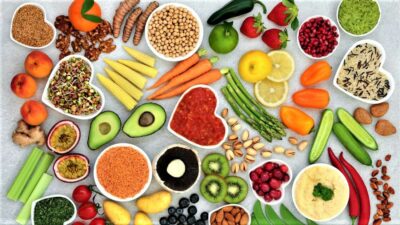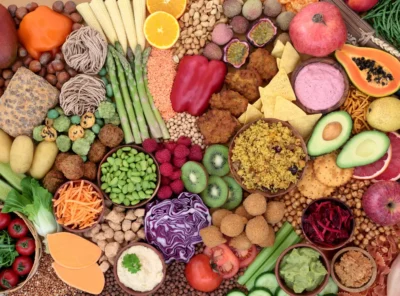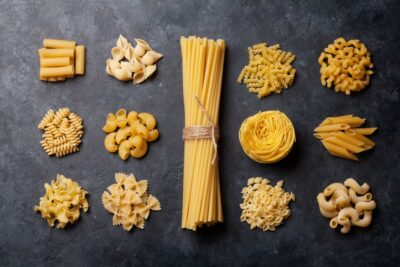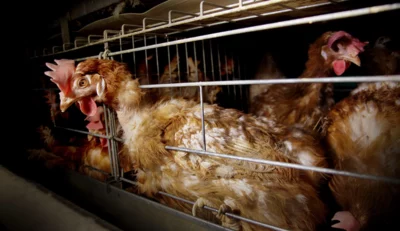More and more people all around the world are embracing veganism, but what do they all eat and where should we start when thinking about introducing more plant-based foods into our own diets?
What Is a Vegan Diet?
Quite simply, a vegan diet is one that contains a wealth of plant-based ingredients and products, while omitting anything that comes from animals. Since there is a vegan version of just about every animal product — from burgers and tuna to ice cream and cheese — vegans don’t have to go without. They just switch from an animal-based product to a plant-based one, and most times, the flavor is so similar, they don’t miss a thing.
List of Vegan Food
There is so much vegan food available now and not just in the fresh produce aisle. These are a few of the foods that we keep stocked in our cupboards. They make eating a delicious, satisfying, and healthy diet super easy.
Fruits and Vegetables
It’s a good place to start! There are hundreds of thousands of edible plants in the world, so why would we stick to the same few we always eat? Choose from the many different delicious salad vegetables, zingy herbs, earthy root vegetables, sumptuous fruits, and tangy berries, and all the other plants, too. We can eat them fresh, canned, or frozen and there are a million ways to prepare them that keep our meals varied and exciting.
Legumes
This is a type of food that includes beans, peas, and lentils. These are full of protein and fiber and can provide texture and density to a meal. They are also inexpensive. There are many kinds of beans, including kidney beans which can be added to chili, butter beans that can be added to stews, or French beans picked fresh from the garden. Lentils can be turned into dal or added to soups and stews. And peas are delicious in rich dishes, or simply served as an accompaniment to a meal.
Nuts, Nut Butters, and Seeds
For healthy fats and lots more protein, we have the wealth of nuts. We can add walnuts to our breakfast cereal, sprinkle hazelnuts onto salads, or snack on Brazil nuts while we wait for our dinner to cook! We can eat peanut butter on toast, make satay sauces with it, or stir it into oatmeal. When we’re feeling fancy, we get cashew or almond nut butter instead. And seeds are nutrient powerhouses. We add them to everything!
Hemp, Flax, and Chia Seeds
Special mention goes to hemp, flax, and chia seeds as these are excellent sources of omega 3 fats (along with walnuts, edamame, seaweed and kidney beans). These seeds can be sprinkled onto breakfast cereals or oatmeal, added to smoothies, included in cookies, cakes and bread, and stirred into pancake batter.
Whole Grains, Cereals, and Pseudocereals
These are fantastic sources of fiber and protein, and help keep our guts happy and healthy. So, when we buy bread, rice, or pasta, we look for the whole grain versions rather than the ultra processed white versions. We may also try grains like freekeh and couscous and as for ‘pseudocereals’, these are fruits or seeds that behave like grains, and include quinoa, amaranth, and buckwheat. Try them all!
Tofu and Other Minimally Processed Meat Substitutes
It may be a cliché that vegans eat tofu but it’s high in protein, and can be incredibly tasty when cooked right. There are different kinds of tofu, some already flavored or smoked, some plain and ready to soak up the flavors you cook it with. Some are dense and chewy; others are silken and can be turned into creamy desserts, like cheesecake. It’s so versatile. No wonder vegans love it.
Calcium-Fortified Plant Milks and Yogurts
Grocery store shelves are full of different plant milks from soy and oat to coconut and almond. Many are fortified with calcium making them an excellent addition to our diets. They can be used in hot drinks, poured onto breakfast cereal, blended into smoothies and shakes, or used in baking. As for vegan yogurts, there are many delicious varieties and flavors so no one misses out on their dairy-based counterparts.
Seaweed
Seaweed is a great source of iodine, so adding a little into our diets helps us get this important nutrient. We can eat sushi and other Japanese foods that contain it. We can also buy or make seaweed salad, or crumble nori or other types of dried seaweed into our savory meals.
Nutritional Yeast
Vegans love nooch, as we affectionately call nutritional yeast. It has a slightly cheesy, slightly nutty flavor which makes it excellent for sprinkling onto pasta dishes, bean stews, and vegetable soups. It can also be added to savory pancakes and scones or other baked goods. Nooch contains lots of nutrients, including protein, B vitamins, and iron.
Sprouted and Fermented Plant Foods
Grains and legumes can be sprouted, which means they can be digested easily without cooking and it could even make their nutrients more readily available. Fermented foods include kefir, kimchi, and kombucha. These foods are particularly good for the gut microbiome, and that has a powerful knock-on effect to many other areas of our health.
Choline-Rich Foods
Choline is an essential nutrient which we make, but we also need to get more in our diets. It helps muscles to contract, is central to our pain response, and supports memory and other cognitive processes. In short, it’s important! Vegans get choline from legumes, potatoes, shiitake mushrooms, all the cruciferous vegetables like broccoli, cabbage, and cauliflower, and also from sunflower seeds.
VFC and Other Vegan Meats
Of course, we also keep a stash of VFC in our freezers! Foods like our Popcorn Chick*n and VFC Tenders make delicious, high-protein, and convenient meals. Other vegan meats include soy grounds for chili non carne, ‘ham’ or ‘chicken’ slices for sandwiches, ‘bacon’ for BLTs, and sausages, burgers, meaty strips for fajitas and much more.
What Can Vegans Not Eat List?
It’s pretty simple. Vegans don’t eat foods for which animals are exploited and killed.
Beef, Pork, Lamb, and Other Red Meat
Perhaps the most obvious red flag for vegans is red meat. This is the flesh of larger animals, such as cows, pigs, and sheep. Not only is red meat carcinogenic but its production is also particularly damaging to the climate. And it’s clearly bad news for animals. Instead, vegans eat steak, mince, burgers, and other red meat alternatives that are made purely from plants but look, cook and taste the same as meat. We get all the flavor with none of the negatives.
Chicken, Duck, and Other Poultry
Most people, but strangely not all, understand that chickens, ducks, turkeys, and geese are animals, too. When trapped in the food system, they are almost all intensively farmed in abhorrent conditions. Vegans don’t eat the meat of these poor creatures, but we do eat realistically meaty but definitely vegan versions, like chick*n burgers, hoisin duck pancakes, and vegan roast turkey.
Fish or Shellfish Such As Crabs, Clams, And Mussels
Fish feel pain. There is no doubt about that. Billions are hauled from their homes to suffocate on a ship’s deck, or they are farmed in filthy, overcrowded pools. Either way, there is no compassion shown to these aquatic animals who do not deserve what is done to them. People who like the taste of fish can find it in the many vegan seafood options now available, from tuna, to calamari, to scampi.
Eggs
Hens are not happy, free-roaming individuals who happen to lay an egg or two that they don’t want. That is just not how a multi-billion dollar industry got so rich. In reality, it crams hens into cages and it selectively breeds them to lay way more eggs than they naturally would. This has a devastating impact on the birds, causing brittle bones and fractures. When their bodies can no longer be optimally profitable, these poor birds are sent to be “despatched” at a slaughterhouse.
Mayonnaise (Because It Includes Egg Yolks)
Vegans love mayo but not the way it has been made since the 1700s — with eggs. Instead, we choose from the many incredible-tasting vegan mayos on the market, which contain no eggs at all. These are so good that many people who are not yet vegan buy them in preference to the eggy version.
Cheese, Butter, Milk, Cream, Ice Cream, and Other Dairy Products
Just as there is suffering and slaughter in the egg industry, so it exists in the dairy trade, too. In order to force cows to produce milk, they must first be made pregnant. The calves are unwanted by-products and to stop them drinking their mothers’ milk, they are taken away soon after birth, either to be forced into the same cycle of exploitation or sent to the veal trade. When their mothers are exhausted from repeated pregnancies and near-constant milking, they too are slaughtered. That shocking ruthlessness is why vegans choose milk, cheeses, butter, ice cream, cream, and yogurts made from plants instead of cows’ milk.
Honey
Honey is made by bees for a reason — it’s the food that the hive needs to keep it healthy and nourished over winter. Beekeepers take this honey from them to sell and instead feed the bees a sugar solution that does not have the nutrients the animals need to keep their immune systems healthy. You can find out more about the bee farming industry here. Instead of using honey, vegans sweeten their foods with agave syrup, date syrup, or a vegan bee-free “honee”.
What Common Meals Are Vegan?
So many commonly eaten meals are vegan or can be made vegan very easily. Here are a few of our favorite lunches and dinners.
Sandwiches
Cheese and pickle. Ham and mustard. Peanut butter and jelly. Bacon and tomato. All of these can be made vegan very easily.
Wraps
Stuff a wrap with falafel and hummus and improve your day 100%. Wraps are also good for making burritos.
Bagels With Nut Butter, Hummus
Bagels are good with nut butter, or hummus, or jelly, or vegan cheese…
Soup Cups, Canned Soups, and Ramen
Lots of canned soups and cup soups are already vegan and these make a quick and simple lunch. For big flavors and a hearty meal, try ramen. Takeaway ramen is often vegan or you can make your own at home, It’s very simple.
Avocado Toast
Crush some avocado with lime juice and chili flakes, and eat it on toast. Perfect.
Baked Potatoes or Sweet Potatoes
Jacket potatoes can be served stuffed with vegan cheese and sweetcorn, with a dollop of hummus, with a large salad, or alongside sausages and fresh veggies.
Indian Vegan Curry Pouches Over Microwavable Rice
Making a delicious vegan curry and rice is not difficult, and there are thousands of beautiful recipes available online. But when time is tight, a ready-made sauce with some frozen veggies added, served with 2-minute rice can be just the ticket.
Roasted Vegetables, Brown Rice, and Peanut Sauce
All vegetables can be roasted. Just serve them on top of some brown rice with a delicious warming peanut sauce for a satisfying and delicious meal.
Spaghetti and Tomato Sauce
We can make a delicious tomato sauce from scratch or we can buy one of the many vegan pasta sauces readily available.
Stir-Fries
We love stir fry veggies and tofu for a nutrient-packed meal. Add cashew nuts for crunch, and flavor it with soy sauce and toasted sesame oil, or add whatever sauce or spices you like!
Quesadillas With Tomato Sauce Or Salsa & Vegan Cheese
The ultimate in comfort food, you can make quesadillas with vegan cheese, and load it with your choice of filling.
Salads
This is not the tired old lettuce-tomato-cucumber combo that passed for a salad once upon a time. Salads can be made with grains, olives, nuts, fruits, roasted vegetables, avocados, seeds, herbs, spices, tofu, beans, falafel, and many other things, all topped with a zingy dressing. Filling, and bursting with nutrients.
Vegan Grocery Tips
1. Choose Whole Foods
Eating whole grains, fresh fruits and vegetables, and minimally processed foods are how we get the health benefits of being vegan. Choose these wherever you can.
2. Plan Your Meals
Make a meal plan for the week to help you get started, and then make your shopping list. That way, when you go to the store, you’ll be sure you get all the ingredients you need to eat well for the week.
3. Know Your Labels
Not everything that is vegan says it’s vegan, so take a little time to read the labels and find out what all those ingredients really are. You’ll be surprised and shocked by some of the ingredients that are included in the foods we eat.
Vegan Brands
There are so many excellent vegan brands but here are a few we truly love.
Alpha
This company makes a range of excellent meat-alternative products including meaty pizzas, nuggets, and ground beef.
Beyond
For succulent burgers, try Beyond. They also make sausages, nuggets, crumbles, and steak — all realistically meaty, but all fully vegan. Amazing!
Califia Farms
Makers of a wide range of delicious milks and coffee creamers, made from almonds, coconuts or hazelnuts. We particularly love their flavored creamers.
Daiya
Probably still the most popular vegan cheese company, with its range of cheeses and cheese-based dishes, including pizzas and mac & cheese.
Follow Your Heart
Another maker of excellent vegan cheese as well as mayonnaise and dressings, this is a brand to look out for. Consistently high quality foods.
Gardein
Makers of vegan tenders, sliders, meatless meatballs, fish fillets, and barbecue wings, it’s no wonder Gardein has such a loyal fan base among vegans.
Good Catch
A fantastic range of vegan seafood that will satisfy any lover of fish. Try their breaded crab cakes, salmon burgers, and tuna.
Hu
While not a fully vegan company, Hu does make the most exquisite dark chocolate bars, including Almond Butter & Puffed Quinoa and Salted. Super tasty.
Tofurkey
We love the range of deli slices that are perfect for sandwiches and subs, and their meaty roasts make the perfect holiday centerpiece.
VFC
Yes, we’re tooting our own horn but our Vegan Fried Chick*n really is very good. Our next-level Popcorn Chick*n, Fillets, and Tenders are always super popular.
Wayfare
Maker of deliciously creamy yogurts, both plain and flavored. The perfect accompaniment to pancakes or oatmeal.
Conclusion
Being vegan is not about deprivation! Vegans eat a host of healthy plant products including salads, grains, legumes, and nuts as well as a wealth of vegan cheeses, milks, butters, meats and seafood. With every supermarket now stocking a wide range of vegan options, there is every reason to eat more plant-based. For animals. For the planet. And for you.





